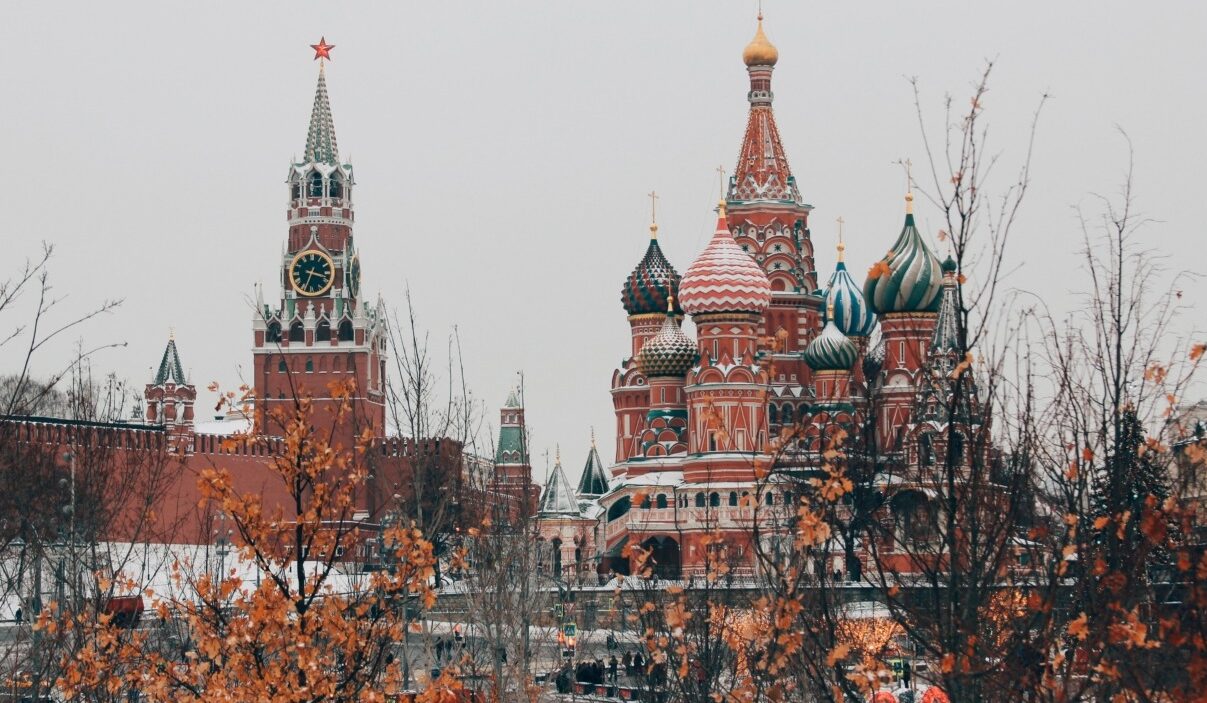Putin’s grip on power has become unchallengeable
Putin and the Kremlin really do value public opinion. That sounds a strange thing to say considering their stark and absolutely shameless distaste for fair elections, but it is true – research uncovering popular opinion makes up a large part of their policy making process. Although Putin is far too traditional to be considered populist, he is still very much going for a ‘man of the people’ image. Protests sparked by the arrest of the very nearly assassinated opposition leader Alexei Navalny are the strongest indicators yet that the Russian people don’t quite see him as their man.
Holding off on the logistics for a moment, I was reading a rather scary article by Dr Jade McGlynn published in The Spectator this week regarding the Kremlin’s response to internal disruption. In summary, when things go south in Russia, external conflict begins. The Russian people are treated like an idle army; they get disruptive when there’s nothing to do, but give them a war and they’ll be right behind it. It’s a tactic that’s been used over and over again; Putin gets bad press and equally bad ratings over his treatment of Ukraine in 2014, suddenly Russia is annexing Crimea, stirring up an eruption of patriotism and the whole countries behind him shouting ‘Crimea is ours’; Ukraine is forgotten and Putin’s everyone’s favourite person. In light of recent events, I would encourage anyone to give McGlynn’s article a read and wonder ‘what might happen if Putin panics now?’
Although Putin is far too traditional to be considered populist, he is still very much going for a ‘man of the people’ image
The protests during the last few weeks follow Navalny’s consumption of tea cut with Novichok, the Moscow made nerve-agent, in August 2020. The accused and likely candidate is the Kremlin, who deny all accusations. After falling ill, the leader and co-founder of the main opposition party (created in 2012 to expose Russia’s top-down corruption) was flown to Germany in a critical condition. He spent five months recovering before flying straight back with his wife. The incredibly brave pair arrived at the airport, tears in her eyes, both aware, no doubt, of what was to come. He was met at airport security and detained. Since then, Navalny has been sentenced to two years and eight months in prison as his hospital stay in Germany violated probation of a money laundering charge that he received in 2014. Earlier this week he appeared in court again for a vague and suspectedly PR motivated case of ‘defaming a second world war veteran’; a cheap attempt at whipping up another anti-opposition wave of patriotism.
Hundreds of thousands of people came together in protests opposing Navalny’s arrest on 23 and 31 January, three European Diplomats at their side. Thousands have been arrested and the diplomatic trio, from Germany, Sweden and Poland have since been expelled for taking part in what the Foreign Ministry have deemed “illegal demonstrations”.
Russia have been eager to publicly display their lack of regard for EU opinion concerning Navalny and the protests, delaying the expulsion of diplomats until Joseph Borrell, the EU minister for foreign affairs, was in town – an intentionally humiliating dig. It has long been known that Russia don’t feel the need to entertain any form of truck with the EU. As far as they’re concerned, a few individual member states hold importance but the collective carry little meaning. As expected, the Kremlin’s first move involves little room for negotiation or exception, they’ve stamped their authority and let the world know that they won’t be answering to anyone.
The squeeze from within mirrors a change in the political landscape of nations worldwide; the young, angry and restless have started to get political
The worry for Russia, however, lies (or marches) within their borders. The squeeze from within mirrors a change in the political landscape of nations worldwide; the young, angry and restless have started to get political. The revolutionary youth grind away at their traditional elders, as they have begun to do subtly in the UK and more strongly in parts of Asia.
Despite arrests being made and the potential for severe retaliation, more protests continue to be planned. Campaigners show no signs of slowing the assault on corruption and obviously believe that a fair democracy is within reach. I doubt that Putin will underestimate this threat, which again, is worrying. If these protests continue, it is out of the question that Putin’s Kremlin will lie down. When assassinating the opposition is considered a reasonable measure to take if it ensures power retention, it is difficult to imagine a measure which might be considered unreasonable.
If protests continue, ongoing violence, imprisonment and death seems inevitable. Alternatively, the important question might be ‘what if the protests do stop?’ What if the fighters for democracy, against unlawful imprisonment, against attempted assassination are beaten into submission? Do the rest of the world hold their hands up and say, ‘well that’s that then’ and continue as if nothing has happened so as to not disturb the Russians? Will governments do anything more than a few televised condemnations and sending strongly worded and later shredded-to-no-effect letters? It’s a similar question to that of China’s treatment of Uyghurs and of the protests in Hong Kong. What can be done about countries that size? What can the world really do about Russia?

Comments